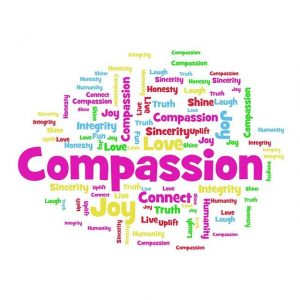 It’s a funny thing about compassion. While we acknowledge our basic needs for food, shelter and work, sometimes we forget our need to both give and receive compassion, all while many in our country feel lonely, depressed and anxious.
It’s a funny thing about compassion. While we acknowledge our basic needs for food, shelter and work, sometimes we forget our need to both give and receive compassion, all while many in our country feel lonely, depressed and anxious.
I read an article recently in “The Daily Good” — The Science of Compassion — by James R. Doty, M.D. He is the director of the Center for Compassion and Altruism Research and Education at Stanford University. In this article, he writes about the poverty of connectedness many Americans experience. He reports one study that revealed 25 percent of Americans have no one they feel close enough with to share a problem. He goes on to state that this lack of social connectedness can have an even greater impact on one’s vulnerability to disease and death than smoking, obesity, lack of physical activity and blood pressure. Pretty startling. But not surprising.
For those who are feeling the effects of social disconnection, what can we do to alleviate the suffering? Doty recommends compassion and altruism. He defines compassion as the recognition of suffering in another and a desire to alleviate that suffering. I think it is also the suffering in ourselves, so self-compassion is also important. The giving and receiving of these lead to significant mental and physical well-being. Our ability to support one another and share our lives are not only central to our survival, they are essential to our happiness.
So, what does this have to do with stories, communication, and happy work places? Obviously, one of the greatest ways we share our compassion is through the listening and telling of our stories. It is how we connect deeply with each other and support our journeys. Telling our story can be very healing. Listening intently to another human being tell his or her story is one of the greatest acts of altruism you can give.
So next time someone starts to share a story, listen up. You might just be the only person who listened that day.

Leave A Comment